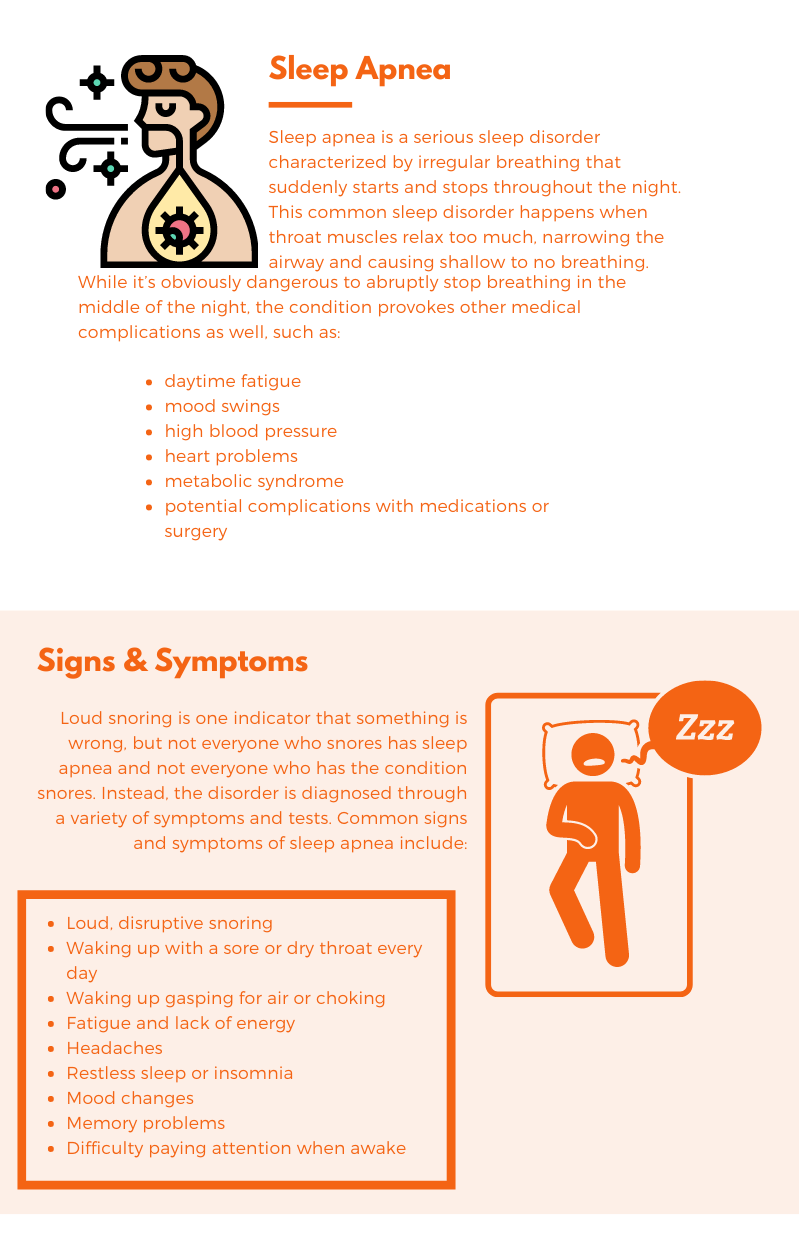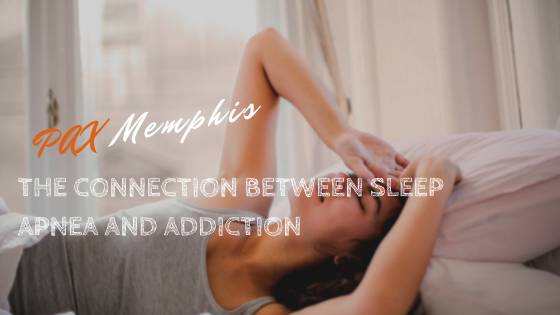Sleep apnea and addiction are co-occurring disorders that affect many people but aren’t spoken about much. However, the behaviors and lifestyles of people who abuse drugs and alcohol actually make them more susceptible to developing sleep disorders. Similarly, people who suffer from sleep apnea are substantially more likely to use drugs or alcohol as a means of self-medicating their symptoms. Regardless of which condition comes first, it’s often hard to get sober and manage a health condition without help from a trusted treatment provider.
Like drug and alcohol addiction, there is no cure for sleep apnea. However, both disorders can be treated with the help of lifestyle changes, behavioral therapy, medications, and medical devices.
Sleep Apnea: Signs, Symptoms, and Treatment
Sleep apnea is a serious sleep disorder characterized by irregular breathing that suddenly starts and stops throughout the night. This common sleep disorder happens when throat muscles relax too much, narrowing the airway and causing shallow to no breathing. While it’s obviously dangerous to abruptly stop breathing in the middle of the night, the condition provokes other medical complications as well, such as daytime fatigue, mood swings, high blood pressure, heart problems, metabolic syndrome, and potential complications with medications or surgery.[1]

These symptoms escalate the worse the disorder becomes and affect everyday life in major ways. Fortunately, there are treatments available to help protect the mental and physical health of people who suffer from this disorder.
Treatments for Sleep Apnea
To determine whether or not a person has this condition, their doctor may order a polysomnogram, or sleep apnea test. The study can be done at a medical facility or at home. Polysomnograms electronically record and transmit information about your body, sleep patterns, and vitals throughout the night. Once your doctor determines that you have sleep apnea, you will begin a personalized treatment regimen.
Treatments for sleep apnea range from lifestyle changes such as eating healthy, losing weight, and sleeping in a different position to the use of medical devices such as a CPAP machine. In very serious cases, surgery might be an option.[2] Furthermore, doctors usually recommend that people with the condition refrain from taking sleeping pills, drinking alcohol, and smoking, as this can lessen one’s symptoms.
The Relationship Between Sleep Apnea and Addiction
There are many risk factors that increase one’s risk of developing sleep apnea. For example, men and older adults are more likely to suffer from it. However, some other common risk factors include the use of alcohol, sedatives, opioid medications, and tranquilizers, and people who smoke.[1] Therefore, people who abuse certain drugs or alcohol are more likely to develop sleep apnea than otherwise healthy people.
Studies have shown that people who suffer from sleep disorders are more likely to self-medicate with tranquilizers or alcohol to help them fall asleep. On the flip side, some individuals self-medicate using stimulants to help them stay awake throughout the day. Similarly, substance abuse perpetuates sleep disorders, which can ultimately trigger a relapse. This study estimates that nearly half of people with sleep disorders use some kind of substance to help promote sleep. [3]
While abusing drugs or alcohol may temporarily relieve a person’s symptoms, this isn’t a healthy way to cope and will only make the disorder worse. Furthermore, substance abuse that becomes habitual can develop into co-occurring addiction and sleep apnea. For example, addictive substances like opioids, alcohol, and benzodiazepines slow down the central nervous system, further suppressing breathing. People with sleep apnea who also suffer from addiction to these drugs may not receive enough oxygen to the brain, increasing the likelihood of life-threatening complications.[4]
This type of self-medication is dangerous, as tolerance will develop quickly and one may find that he or she needs to consume a substance in order to sleep or function throughout the day. Consequently, most medications people use to calm the symptoms of sleep disorders are highly addictive and require professional treatment.
Finding Help for Co-Occurring Disorders
If you suspect that you’re suffering from sleep apnea and addiction, the best thing to do is seek help right away. Addiction treatment centers with fully equipped medical staff are able to treat your symptoms of sleep apnea and help you begin healing from addiction.
Early diagnosis and proper treatment of sleep apnea and addiction are important for achieving a full recovery and preventing relapse. If you fail to get treatment for both conditions at once, you run the risk of self-medicating to sleep once again. Instead, it’s best to tackle both sleep apnea and substance use disorders simultaneously.
Our Memphis drug and alcohol rehab is staffed with medical professionals and licensed addiction counselors who can help you recover from co-occurring disorders. Contact us today to learn about your treatment options.
References:
Medically Reviewed: September 25, 2019

All of the information on this page has been reviewed and verified by a certified addiction professional.










